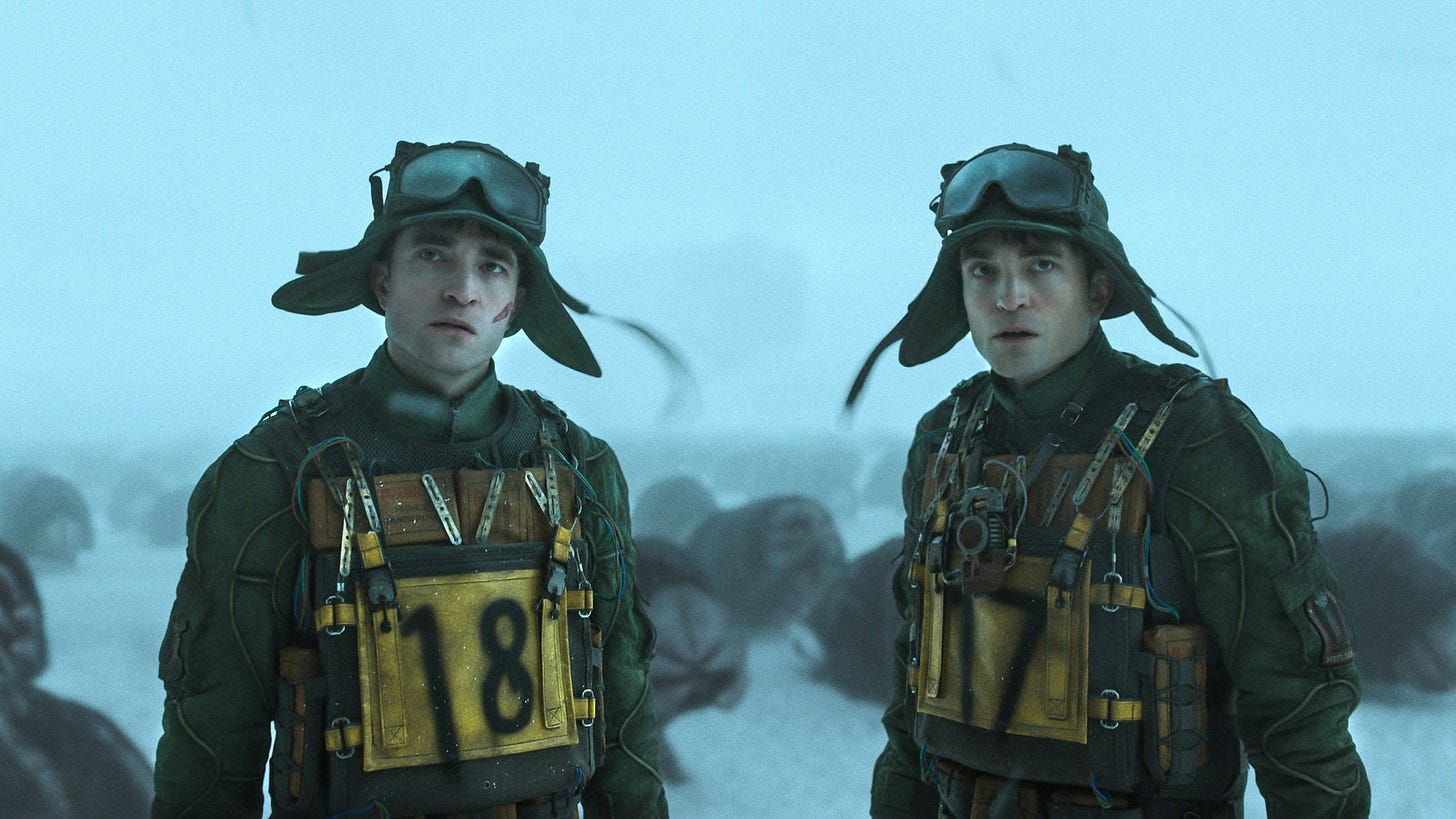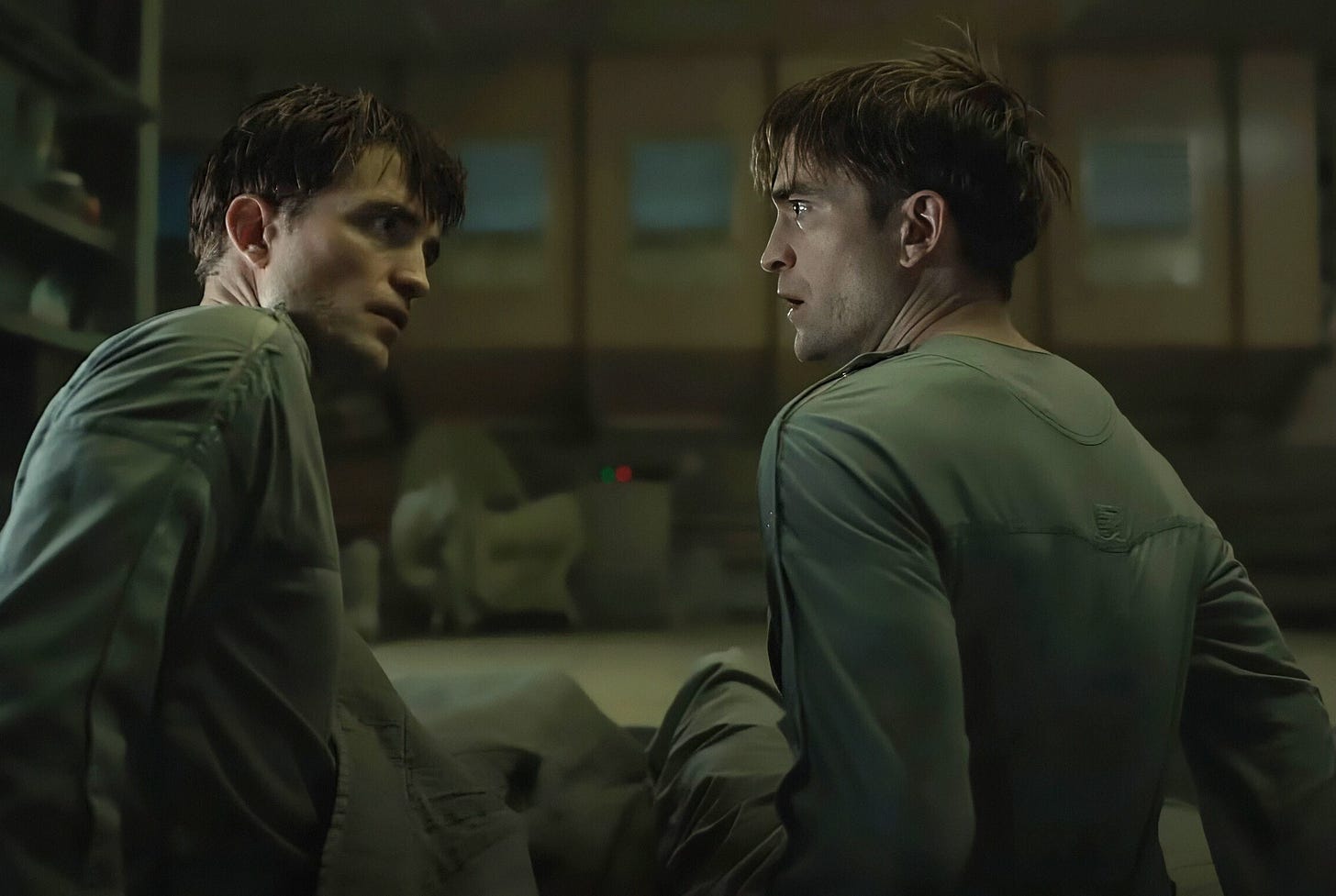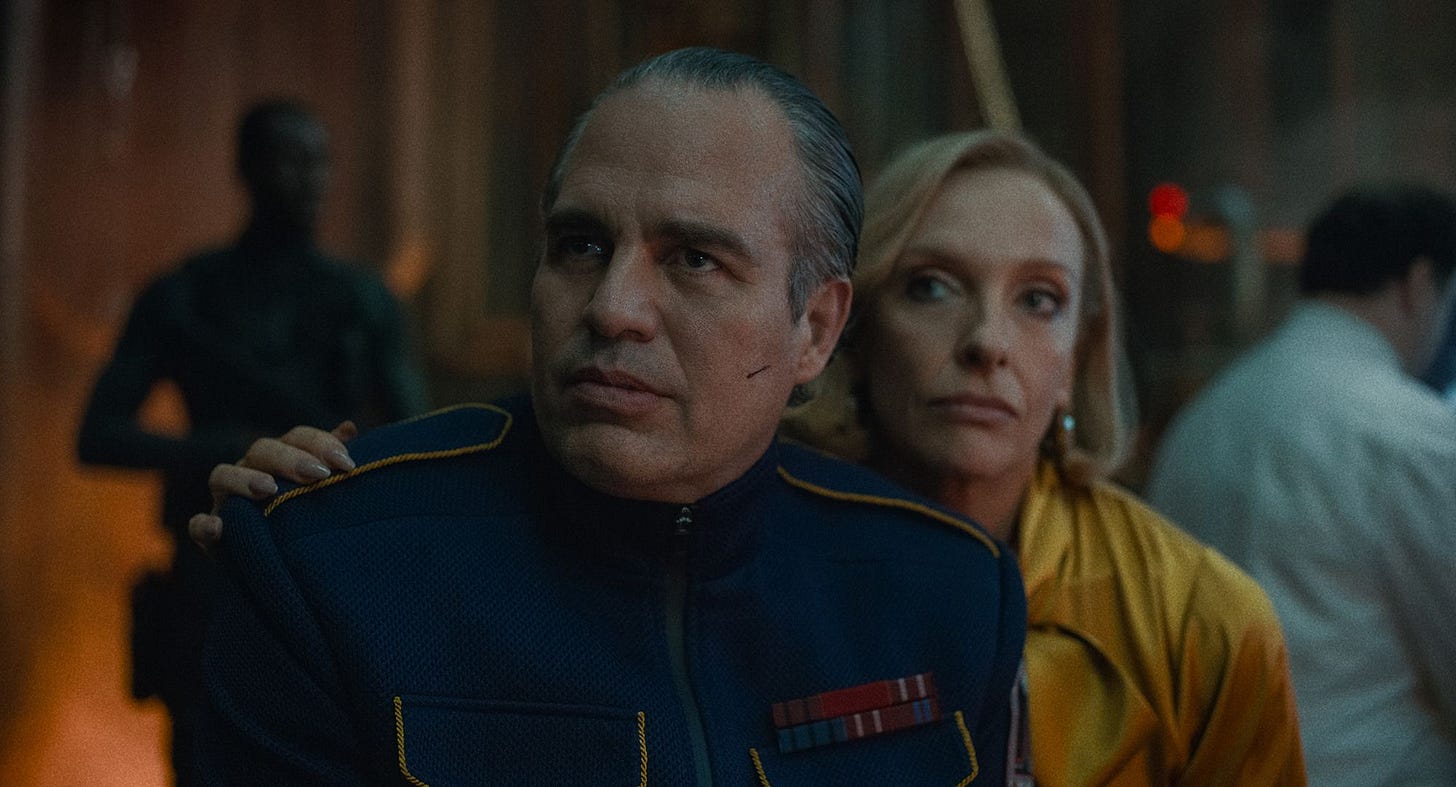Call it, if you find it fitting, a slow burning fuse.
It has been six years since writer-director Bong Joon-ho’s previous film, 2019’s Parasite but with his newest effort, Mickey 17, which had its wide release this past weekend, it is to see him return to the fold with a finely-honed confidence.
Although, perhaps it isn’t too surprising then, in that spirt, that the film’s debut was long-on-arrival (somewhat ironically too, given the inciting, space-journey crux of the operation, which is an adaptation of Edward Ashton’s 2013 novel, Mickey7).
Delayed multiple times, with filming having wrapped in early 2023: in pursuit of the ideal release window and with Bong, it seems, long chasing his set creative standard.
And though Mickey 17 never feels totally overextended as it brings various threads together apart of its tapestry - be it thematically, narratively or tonally - there is a question of just how deeply the film itself will truly resonate, both because of those decisions and in spite of them.
Immediate yes but not long-lasting.
Mickey Barnes (Robert Pattison) just can’t catch a break.
So feeling the need to simply cut his loses and start fresh, he and his friend Timo (Steven Yeun) look to a (literal) new horizon.
That, aboard a four-year colonization shuttle bound for the planet Niflheim (and yes, right on cue, all the Norse mythology enthusiasts shuddered).
Not having any particular care where he is placed, so long as it sees him clear of Earth, Mickey signs up to be what is dubbed an “Expendable”: the grunt, the mule, who is purposefully assigned the most dangerous and often lethal tasks, said to be for the greater good. The catch however, is the ethically-dubious cloning program which continually brings him back to life, physically and with his memories intact - enough so, that, despite his day-to-day uncertainty, he maintains a romantic relationship with shuttle solider Nasha (Naomi Ackie).
Though once the shuttle lands on Niflheim, the machinations of the expedition’s organizer, Marshall (Mark Ruffalo), a disgraced, maniacal politician come into view. He hopes to establish a footprint on the planet, while wiping out the indigenous creature population (“Creepers”), as his wife Ylfa (Toni Collette), the true mastermind, schemes alongside him.
But when the most recent Mickey (the titular 17), presumed dead, stumbles back from his most recent mission very much alive, he finds himself coming face-to-face with his successor, Mickey 18 (Pattison again, naturally).
Though as he does, it becomes clear they’re not just fighting for the title of Top Dog (Mickey’s Version) but instead, something bigger.
Technically, Mickey 17 doesn’t have any one particular item that stands out per se but everything works in wonderful tandem.
Darius Khondji’s cinematography, the editing, the utilitarian but perfectly designed costuming, which fits the realized set design to a tee (shades of the Diefenbunker, in a futuristic sci-fi mold).
The special effects feel relatively quiet, given their larger prominence across the board but (as it usually goes) with the most focus in the third act: though with very little as it relates to audience disengagement by way of (broadly speaking) spectacle overload. There isn’t a push for more just for the sake of it, nor being drawn to any one thing at the expense of another, creating an all-around effective sense of presentation.
Bong, both writing and directing, sees all these elements mesh, as always, in an efficient, almost understated way.
The performances are uniformly strong, as well.
Yeun is a fun presence as Timo, a man who oscillates between audience sympathy and hostility in a way that feels believable given how his arc plays out, while Ackie quickly shuts down any presumption that she’ll neatly fill the “love interest” archetype to great success: a woman who isn’t afraid to stick by her principles, in taking things into her own hands. As Kai, Anamaria Vartolomei plays against Ackie with good energy but the larger narrative isn’t quite sure what to do with her and ultimately, she is under-utilized given the initial prominence it appears her character with have (though in smaller support, the rest of the auxiliary cast rounds out well).
Pattison though, as the lead(s), is the anchor of the film, in a way that speaks to a talent that has never, completely, been given due-credit over the course of his career. He’s shouldered with the most visible of thematic weights (the cost of existential individualism) and divides it amongst his two main characters with an impressively subtle expertise.
Mickey 17 is nigh-neurotic, a hopeless romantic who struggles with the emotional burden of past demons - a man, who, despite more-or-less accepting the uncomfortable reality of his existence (his consciousness will live on in the cloning process but he, physically, as an individual will, not), simply won’t roll-over to it, either. Mickey 18, on the other hand, feels very much like a different person altogether - by design of course, as Pattison told Empire during his press run (his interpretation of that specific character, beginning as something of a Steve-O impression before landing on Ren of Ren & Stimpy fame, as the 90s kids rejoice).
And yet, 18 seamlessly comes across as a Mickey who woke up on the wrong side of the bed and just won’t apologize for it, a second side to the previously established coin: blunt and driven towards his goals, creating a deeply cynical emotional detachment Pattison slowly peels away. As both characters, Pattison nails his comedic timing, physicality and few heavier emotional beats, though in vastly different ways. All of it, highlighting a noticeable fullness to his portrayal. Neither character nor their stakes, through him, feel shortchanged or half-baked, as they slowly come to accept the other.
The film’s antagonists however, simply don’t have the same complexity to parse.
Though that isn’t to say that Ruffalo and Collette deliver sub-standard work but rather, with their characters being more actively entwined with the heavier thematic strokes of film, as a byproduct, a more pronounced spotlight just doesn’t serve them consistently.
Heavy sci-fi, dark comedy and light body horror, with a dash of romance in support, overlaid with political and social satire for good measure.
Mickey 17 packs its thematic binds tightly, each, feeling purposeful and necessary in its own way (notable, given the breadth there), an absolute riot at its strongest, though surface-level in weaker contrast. As it relates to Ruffalo, there just isn’t much to say for a character, who, through his own sly admission, is clearly (right down his physical and verbal delivery) meant to be a riff on US President Donald Trump (and perhaps to a somewhat lesser extent, given the film was shot three years ago, Elon Musk).
Now, both Ruffalo and Collette play into this, as two emotionally-stunted, destructive morons, who recklessly and amorally wield power that shouldn’t be in their possession in the first place. Actively, (true to form) treating the people below them as, well, expendable cannon fodder in the chase of self-serving goals (even if their most committed followers don’t see it).
It fits with what the film is shooting for yes and is executed with a certain touch of narrative confidence (whilst always teetering on the edge of comeuppance) but it can also feel campy. Over-the-top within those confines and yet, wholly ineffective elsewhere, given the mirror one will inevitability hold up to the real-world parallels drawn. So fundamentally present in the narrative, the structure, the consumption of Mickey 17, it is inescapable (that being, the personal liberty destroying, economically damaging and Canadian sovereignty threatening tirade the current American administration is, as of this writing, currently engaging in).
Bong may present these characters but he doesn’t have anything to say beyond that, clearly trusting the audience to drawn the necessary conclusions, with optimism through trial and hardship, the ultimate message he wants to leave with the viewer.
And though understanding that it may not be entirely fair to either performer or the larger project, with its comedic bent, to view their portrayals exclusively through this lens (and with it, that certain sense of real-world expectation), it presenting such overtones so unambiguously, comes then, a responsibility, one way or another - one the film just can’t live up to.
Yet, well built technically, with engaging performances and a comedic-humanistic base that informs the best of its running time, Mickey 17 is an undeniably fun time to be had at the theatre. Though it does come to stumble, up against a surface-level sheen, which limits a practical memorability, in impact, once the credits roll.
Exactly what it sets out to be and no less - but no more, either.







